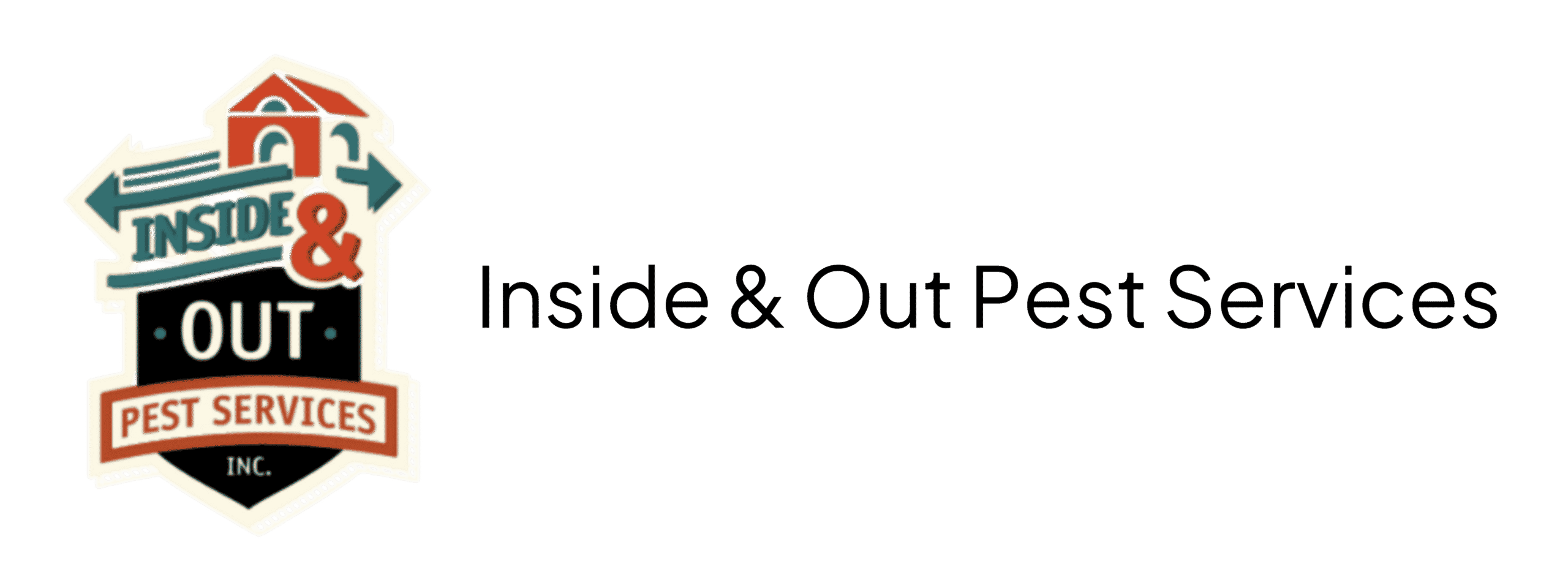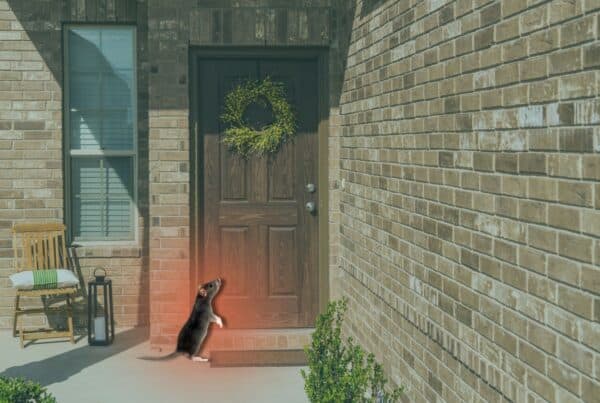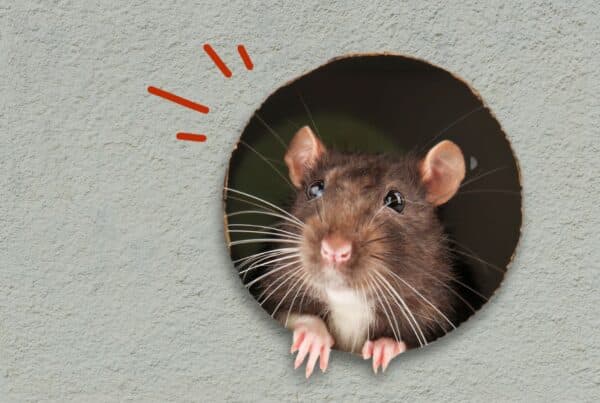Spotting droppings in your home can be alarming, but not all rodent infestations are the same. In this guide, we walk you through how to tell rat droppings vs mouse droppings, what each type of pest usually does inside a home, and how to solve their differences with confidence.
Correctly identifying the pest makes a big difference in stopping the problem fast and keeping your home safe.
Spotting the Difference
Recognizing these traits helps you understand the scale and type of infestation. A smaller number of bigger droppings usually indicates rats. A high volume of tiny ones points to mice.
| Feature | Rat Droppings | Mouse Droppings |
| Length | ½ to ¾ inch | ⅛ to ¼ inch |
| Shape | Thick cylinders, blunt ends | Slim and pointed like rice |
| Color | Shiny black or dark brown | Matte brown, crumblier |
| Quantity | Scattered in small clusters | Large numbers nightly |
| Location | Near walls, behind appliances, in garages | In cabinets, drawers, food areas |
How Each Pest Behaves Differently
1. Entry Way Differences
- Mice slip through dime-sized holes
- Rats need openings as wide as a quarter
Focus on sealing small holes to deter mice and check bigger ones for rats.
2. Eating Habits
- Mice nibble on grains, paper, pet food
- Rats eat nearly anything and often stash food
Limit rat risk by securing trash and removing dense vegetation near the house.
3. Nesting and Damage
- Mice build soft collections in hidden spots
- Rats tunnel and chew through harder materials, risking electrical fires
Listen for scratching sounds at night. Nails in walls or the attic are a clear warning flag.
4. Noise & Sightings
- Mice stay quiet; you may graze past them unseen
- Rats make loud thumps, especially in ceilings or walls
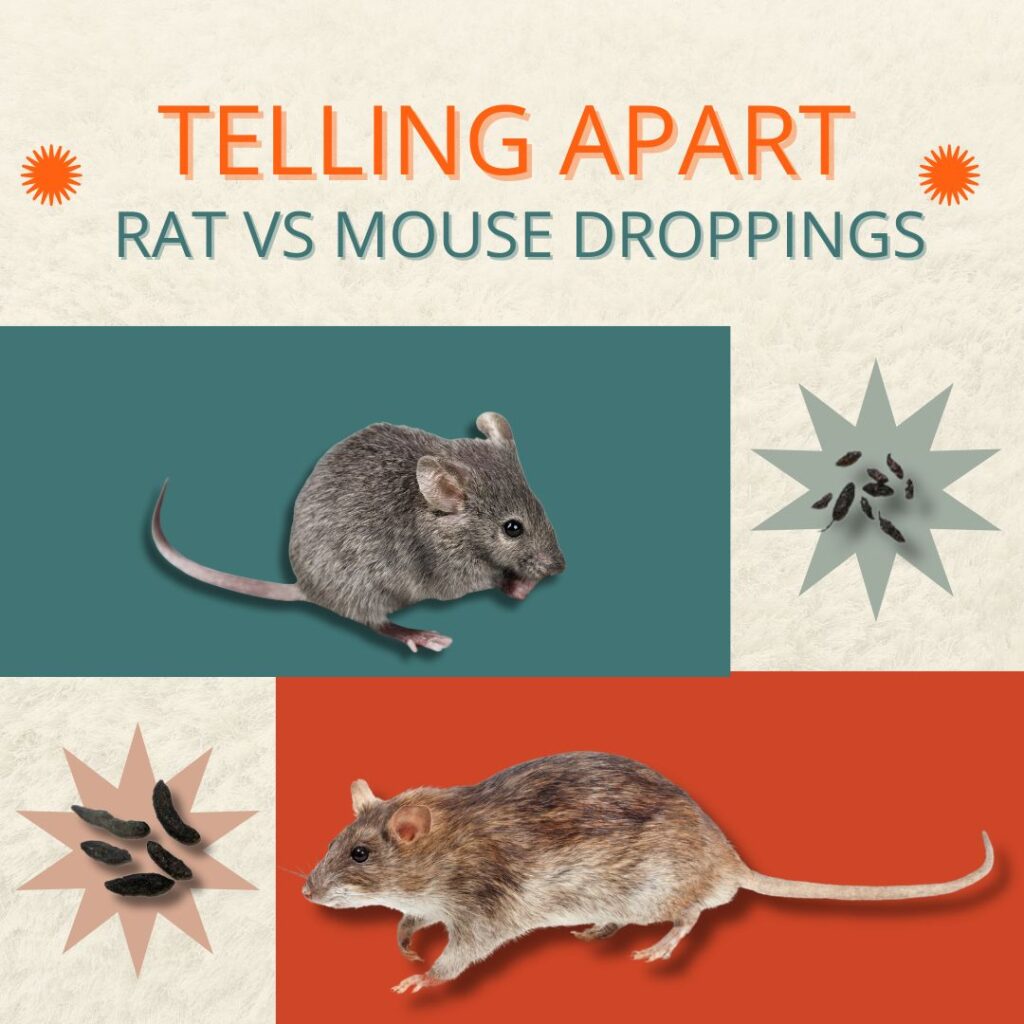
Health and Home Impact
Rodents carry disease. The CDC reports nearly 35 diseases spread by exposure to rodent droppings and waste. The notable risks include:
- Salmonella: From contact with droppings
- Leptospirosis: Via contaminated water or puddles
- Allergens & asthma triggers: From dried urine dust
Rodents cause about $20 billion in property damage per year. Rats can chew through insulation, wiring, even wood foundations.
Early detection saves major repair bills and avoids hidden fire hazards.
Safety First: If You Have to Clean Up Droppings
If you find a small area of droppings…
- Avoid sweeping or vacuuming. You could spread airborne pathogens.
- Wear rubber gloves and an N95 mask to prevent contaminant exposure.
- Mix a disinfectant solution of one part bleach to ten parts water in a spray bottle.
- Soak the droppings and the area until wet. Leave for 5 minutes to disinfect.
- Wipe up them up with disposable paper towels.
- Dispose of gloves and towels in a sealed bag, and wash your hands thoroughly.
These steps keep you safe from zoonotic disease during cleanup.
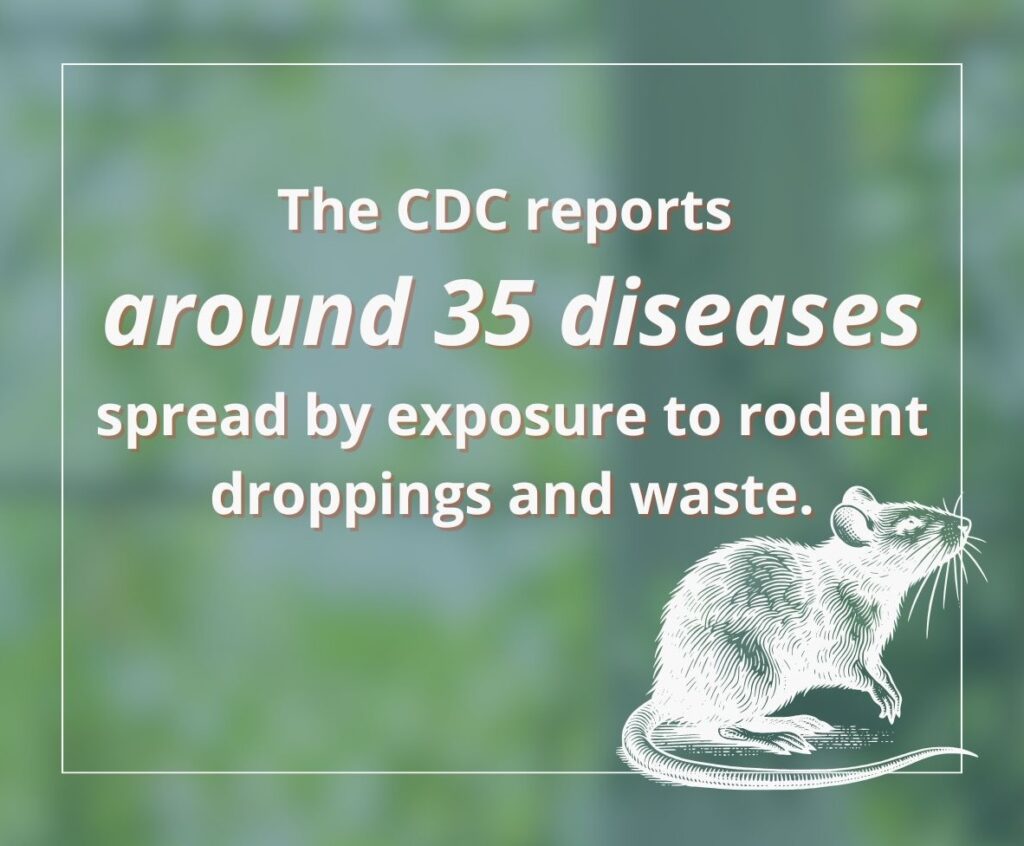
When to Call a Pest Professional
If droppings appear in more than two rooms, or if movement noise or gnawing is present, reach out to Inside & Out Pest Services. Each pest needs a different plan:
- Rat infestations: Trapping and sealing large entry points
- Mouse infestations: Use exclusion methods, bait stations, and sealing small cracks
Also, ask us about inspection and monitoring services, including safe removal and odor control after an infestation.
More Rodent Proofing Tips
- Seal holes larger than ¼ inch with steel wool or wire mesh
- Store food in airtight containers
- Trim tree limbs and shrubs away from roof and sides
- Keep garbage bins firmly sealed and away from home
- Clean attic and garage areas to reduce nesting spots
Following these tips helps prevent rodents from taking hold in the first place.
Conclusion
Knowing the difference between rat droppings vs mouse droppings instantly sets you on the right path. Rat droppings are larger and blunt, mouse droppings are small and pointed. But if the signs point to either rodent, early action matters.
To protect your health and your home, act fast. Cleanup carefully, rodent-proof your home, and call a professional when needed.
At Inside & Out Pest Services, we are ready to help Jacksonville homeowners solve their pest worries for good.
